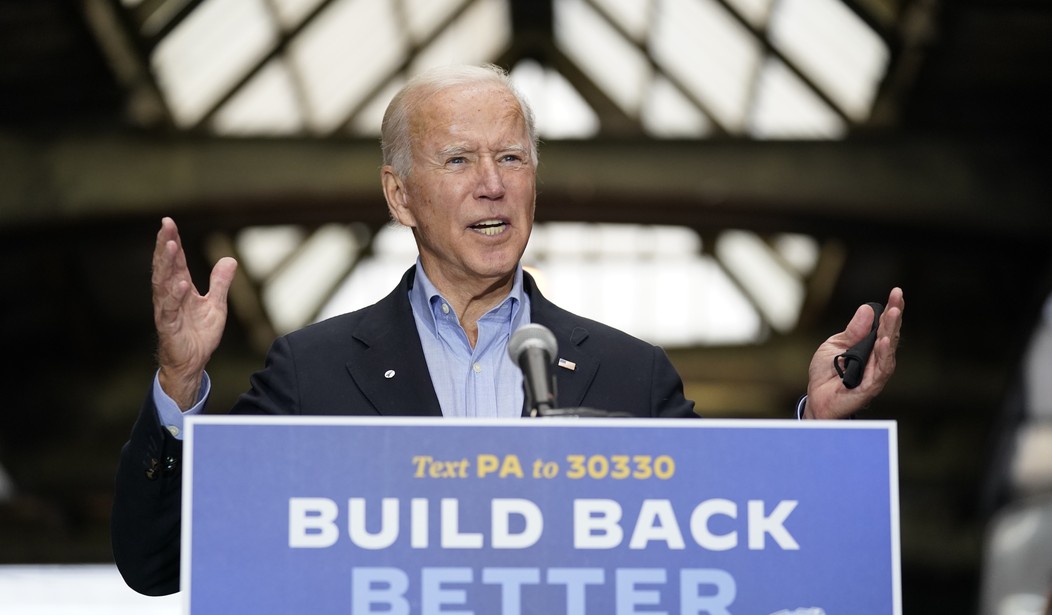The fearsome specter of a nationwide railroad union strike — one that Joe Biden prematurely declared he had averted before the midterms — is back in focus this week after one of America's largest railroad unions voted Monday to reject the brokered contract on which the White House took a September victory lap.
As Axios summarized on Monday morning, the "two largest unions, representing about 62,000 engineers and conductors...are set to announce vote results Monday, and the health of the U.S. economy is hanging on their yeas and nays" on the latest labor contract.
One, the SMART Transportation Division announced that its members had voted to reject the deal, while the Brotherhood of Locomotive Engineers and Trainmen voted to ratify the deal.
For those who've not been following the Biden administration's now-botched attempts to reach a deal that would be accepted by all 12 railroad unions, a rejection and strike by any union will trigger a strike by all union workers, grinding the economy to a halt.
BREAKING: The largest railroad workers union, SMART-TD, has voted to reject a tentative contract agreement.
— More Perfect Union (@MorePerfectUS) November 21, 2022
Meanwhile, BLET, the second largest union, has voted to approve the agreement.
If SMART-TD or other unions strike all the rail unions will honor the picket lines.
In October, trouble started again as one rail union voted to reject Biden's proposed deal, bringing back the risk of a national shutdown. Three other smaller unions also voted previously to reject the contract and are back in negotiations despite Biden's claim that the agreement reached in September was a "win for America." Now that one of the country's largest unions has joined in rejecting the deal, the power shifts back to the labor side as Biden and his cabinet scramble to again prevent a nationwide strike.
Recommended
The current deadline, which was conveniently moved until after the midterms and extended again to early December, means that — without congressional intervention or a new deal being offered and accepted by all 12 unions — a national railroad strike could begin at any time after midnight on December 5.
After months of back-and-forth attempts at negotiating between rail companies and one dozen unions representing workers nationwide, it looks like the White House has again oversold its ability to solve problems.
As Vespa explained in September, the issue centered around twelve unions, two of which refused to sign onto a new labor agreement unless there were some ironclad details worked out over sick leave and missed work penalties.
Biden took a victory lap in mid-September after announcing a "tentative" agreement had been reached with the unions to avert the shutdown just before Americans voted in the midterms, despite the fact that all unions involved hadn't even voted to accept the terms. Indeed, now a handful have voted to reject the deal.
Even though the strike was averted for the time being, Americans got a taste of what such a strike could mean when Amtrak preemptively canceled long-haul service to avoid stranding passengers if a deal hadn't been brokered and commodity transport companies halted shipments to prevent mass-spoiling of critical goods.
If everything goes wrong this time around, as it often does for President Biden and his administration, the White House's previously explained "contingency plan" is not much of a plan at all. Since negotiations hyped up by President Biden have not gone well, the economy's only hope may be a 1926 law that gave Congress the power to intervene in rail strikes to force a contract or block a strike from taking effect.

























Join the conversation as a VIP Member